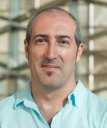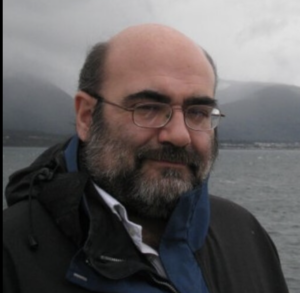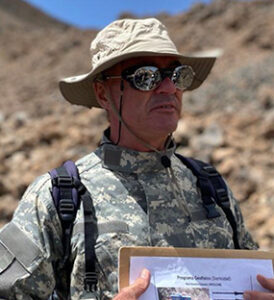Footage from MarineSciCamp, fieldtrip itinerary may change year to year.
By GeoTenerife
MARINESCICAMP 2025
Come and join us in the sunny Canary Islands for a month for a unique programme that combines marine science training with residential experience onboard a Spanish Oceanographic research vessel. MarineSciCamp is GeoTenerife’s flagship marine training programme run in association with the Spanish Oceanographic Institute that includes residential onboard research with the team responsible for the ongoing monitoring of underwater volcanoes in the Canary Islands.
1-29 November 2025
Students will join us in Tenerife for basic training, including:
-
MATLAB skills
-
Introductory lectures and tours into the volcanology of the Canary Islands
-
Collaborative Research for GeoTenerife’s ongoing VolcanoStories project and IEO-CSIC projects
-
In-person participation at the III international #VulcanaSymposium on 7 November
Students will then join the team on board the research vessel, a unique opportunity for undergraduates, recent graduates or early career scientists to learn a range of highly specialised data acquisition and processing skills on board R/V Ángeles Alvariño, the Institute’s research vessel.
All teaching is in English, but our teaching staff are bilingual (Spanish/English) and can help you to access the programme fully if English is not your first language.
MarineSciCamp programme
Attendance to the International VulcanaSypmposium. This symposium brings together leading researchers, emergency managers and students to share their research and knowledge of submarine volcanology, emergency management and adjacent fields.
Introduction to programming in Matlab for oceanographers
Introduction to Tenerife’s marine ecology, geology, land protection law, current social issues regarding marine environment and coastal environment
Training in specific instruments and preparation of reagents and analytical techniques
Research the impact of beach replenishment on the coastal and intertidal environment and the marine geology of El Puertito. After the research period is complete, you will collaborate with our VolcanoStories staff to produce an interactive output accessible to the public and non-scientists to increase the impact of your research. Previous examples includes an interactive map, YouTube video, and a timeline of events.
MarineSciCamp 2023 students researched the impact of effluent from nearby tourist areas on the marine seagrass meadows and invasive species of algae through an underwater drone campaign. Read more about their research here.
Research work to be done onboard:
-
acquisition and processing of bathymetric data (3D reconstruction of the marine seabed)
-
acquisition and processing of physical-chemical data with CTD (programming in Matlab)
-
acquisition of biogeochemical samples with in situ water samples from an oceanographic rosette (niskin bottles) – dissolved oxygen, inorganic nutrients, DIC, POC, DNA, etc
Once onboard the Research Vessel students will join the Spanish Institute of Oceanography and other multidisciplinary
The exact outline is yet to be determined and is subject to change, and will be confirmed nearer the time. Previous cruises have included research on the Lanzarote coast (bathymetries); physical-chemical monitoring of Volcán de Enmedio (between Tenerife and Gran Canaria islands); research on the submarine volcano Tagoro, the underwater volcano that erupted in 2011 off the coast of El Hierro island or research on the lava delta created during 2021’s eruption of La Palma volcano (Tajogaite).
MarineSciCamp costs £950 for four weeks. What is included in your programme fee?
-
You will be learning highly transferable skills in your time with us.
-
The scientists you will be training with are industry-recognised experts, and you will be learning directly from them.
-
You will receive feedback and guidance about your training. This is an opportunity for you to develop a range of skills that are directly transferable to the workplace and will strengthen your CV.
-
The fee covers the teaching costs and expenses as well as all your accommodation, half-board catering (Monday-Friday) while on land; full catering when you are onboard the ship; transfer costs to get to/from the pick-up point for your designated leg onboard (including inter-island transfers); airport/port transfers, daily transfer to your changing work environment.
-
We organise any required permits to enable you to participate in our fieldwork as well as any medical certificates you may need to be able to work in certain industrial installations where applicable. We endeavour to ensure you always have access to WIFI and a shared kitchen (except onboard).
-
Your fee also covers our excursion programme, to ensure you learn about and enjoy the particular nature of the environment you are working in from our associated local experts. All associated costs (including extra insurance where required, or government permits) are included in your fee.
-
Part of your fee covers GeoTenerife running costs in the UK and Tenerife (to ensure a successful programme we have a permanent, fully-owned subsidiary in Tenerife), our ABTA membership (the UK travel trade association for tour operators and travel agents which protects your payment so your booking is secure) and comprehensive work and liability insurance cover. A further percentage of your fee supports our Scholarship programme to enable wider access to our training programmes.
-
On successful graduation, we are here to advise, promote, support and act as referees for you long after your month with us in the Canary Islands ends.
The fee does NOT cover your food or flights to/from Tenerife, which is your responsibility to book and pay for.
Some of our participants each year are part or fully-funded by their home university to participate in our programme, so it is worth asking your tutor if funds are available for this purpose.
GeoTenerife is committed to open access. We are passionate about making our programmes accessible to talented young scientists wherever possible, and our scholarships are intended to support students who otherwise would not be able to apply. This scholarship will cover the full course fee (which includes accommodation, half-board catering (Monday to Friday) while on land, all local transfers, tuition, excursions and insurance but not flights to/from Tenerife). In order to apply for a scholarship, please mention in your application your need for financial support to access the programme.
Please note that our scholarships are only intended to open access to students who otherwise would not be able to apply.
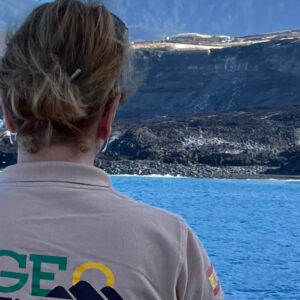
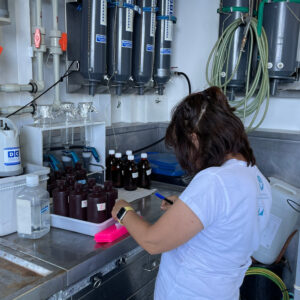
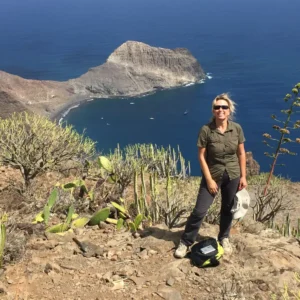
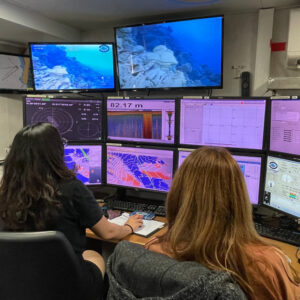
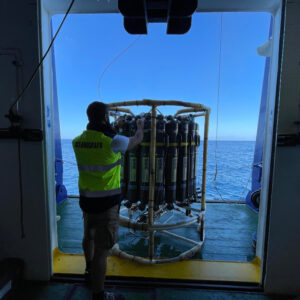
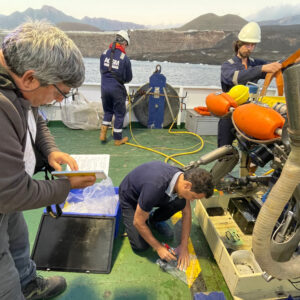
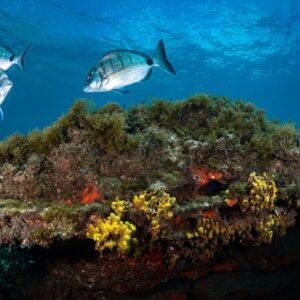
Want to apply? Please send a Cover Letter (Maximum 1 page) and CV (Maximum 1 page) to enquiries@geotenerife.com, with “MarineSci applicant 2025” in the subject line of your email. Our programmes are oversubscribed so do take care over your application.
Teaching Staff
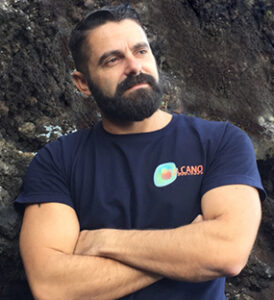
Eugenio Fraile Nuez, Physical Oceanographer, Instituto Español de Oceanografía (IEO), Spain
GeoTenerife has also begun a fruitful research collaboration with the Spanish Oceanographic Institute, beginning with co-organising the First Symposium on Submarine Volcanism in the Canary Islands, the 3rd VulcanaSymposium will take place in November 2024.
GeoTenerife and the Instituto Español de Oceanografía are also collaborating in the running and facilitation of an annual Marine Science Camp, the first of which is taking place in November 2022. The selected students will spend time assisting in critical research taking place on board the IEO’s research vessel, in waters close to a number of the Canary Islands. More details of the research conducted as part of this field camp will be published here soon.
He graduated in Marine Sciences from the University of Las Palmas de Gran Canaria in the year 2000. Four years later he received his doctorate from the same university, obtaining the extraordinary prize for the best doctoral thesis in the area of Experimental Sciences. Since 2009 he has been a Senior Scientist at the Spanish Institute of Oceanography at the Oceanographic Center of the Canary Islands, Tenerife. His research on Climate Change focuses on the variability of thermohaline properties, mass and heat transport of large-scale ocean processes. In 2011 he started a new line of research focused on submarine volcanological processes, hydrothermal sources and volcanological risk. submarine, with a training stay at the Universitè Pierre et Marie Curie in Paris, France, in the laboratory, LOCEAN.
He has actively participated in more than 20 national and international research projects, he is the author of more than 55 scientific articles in journals with a high impact index, books, book chapters and popular science magazines, as well as institutional technical advice. He has considerable experience in the design and execution of oceanographic campaigns, accumulating more than 1,200 days at sea in various research vessels. He is a member of the working commission of experts on Climate Change of the Spanish Institute of Oceanography and the Community of Murcia and since 2014, he has been an Advisor to the National Council for Maritime Safety of the Government of Spain on submarine volcanological risk.
He is currently the Principal Investigator of the VULCANA project (www.vulcana.eu) for the study of physical-chemical-biological and geological properties in submarine volcanoes of the Canary Islands.
Jesús he is currently holds a permanent position as Senior Scientist at the Spanish Institute of Oceanography (IEO) in Santa Cruz de Tenerife (Canary Islands, Spain). He graduated in Biological Sciences at the University of the Basque Country where he received the Honorary Collaborator award. After his graduation he moved to the University of Vienna (Austria) and later to the Royal Netherlands Institute for Sea Research (The Netherlands), where he obtained his PhD degree at the University of Groningen with the mention “Cum Laude” (top 5%) in 2005. After a postdoctoral period, he held a Ramón y Cajal research position between 2008 and 2014 at the Mediterranean Institute for Advance Studies (IMEDEA, CSIC). Between 2015 and 2017, he worked at the Red Sea Research Center of the King Abdullah University of Science and Technology (KAUST, Saudi Arabia) as a Research Scientist (R5). He has published over 50 scientific papers in peer-reviewed journals including some of the top-tier journals like Science, Nature and PNAS. His scientific interests focus in marine microbial ecology and the role of microbes in the functioning of the biosphere and the regulation of climate processes. Currently leading project POSEIDON, he aims to shed some light on the mechanisms that allow the long-term storage of dissolved organic carbon in the deep ocean.
Dr. Juan-Tomas Vazquez, Senior Researcher at Instituto Español de Oceanografia
Born in Albolote (Granada) in December 1962, he graduated in Geological Sciences (Dynamic and Structural Geology speciality) in 1985 at the Universidad Complutense (Madrid) and received a doctorate from the same university in 2001, with a thesis entitled “Structure of the Northern Margin of the Alboran Sea”. In 1986 he joined the Marine Geology Service of the Geological and Mining Institute of Spain (IGME), first as a postgraduate fellow and later as a Contract Researcher.
Between 1993 and 2007 he was a professor at the University of Cádiz (Associate Professor since 2004 at the Internal Geodynamics area) where he taught Marine Geology and Tectonics. Since October 2007 is Tenured Scientist at the Spanish Institute of Oceanography (Centro Oceanographic of Malaga), forming part of the Marine Geosciences Group (GEMAR). Their lines of research focus on the study of active geological processes in continental margins and ocean basins: geomorphology and active tectonics, emissions of fluids from the subsurface, mass flow processes and tsunami-generating mechanisms, developing this work in various areas of the continental margins of Iberia, of the Canary Islands and Antarctica. He has participated in more than 25 national projects, 2 of them as coordinator and principal investigator: MONTERA (Seamounts of the Margins Southern Iberia: Alborán Sea and Gulf of Cádiz) and SUBVENT (Emissions of fluids in the Continental Margins of the Canary Islands and the Gulf of Cadiz), various projects of the ESF, including one from the EUROFLEET programme. Participant in a research group Junta de Andalucía (RMN-0328, of which he was coordinator between 2006 and 2007), of a Group of Research of the Generalitat de Catalunya (2009SGR1071), of 5 UNESCO groups (IGCP and SCAR-IPY), and 2 from INQUA. Since 1986 he has participated in 50 scientific campaigns of a national and international, several of them as chief scientist. He has been the author of numerous scientific papers published in journals and books, 33 of them within the SCI ranking, has participated in more than 250 contributions to national and international conferences, and has been guest editor of 4 special volumes of national and international magazines.
Alexis Schwartz is a GeoTenerife’s full-time resident expert Volcanologist and Geologist. He has an extensive knowledge of local outcrops, geology and volcanology and spent many years researching the islands for the local volcano monitoring institution and for his thesis at the University of Leicester, titled “Petrogenesis and Physical Volcanology of a compositionally zoned ignimbrite on Tenerife, Canary Islands, Spain”.
He also has a wealth of past teaching experience including an established career as a geoscience tour guide in the Canary Island. Alexis helps to organise and facilitate much of GeoTenerife’s research on Tenerife, particularly in site selection, and has also been involved with international geological research relating to the 2021 eruption on La Palma.

